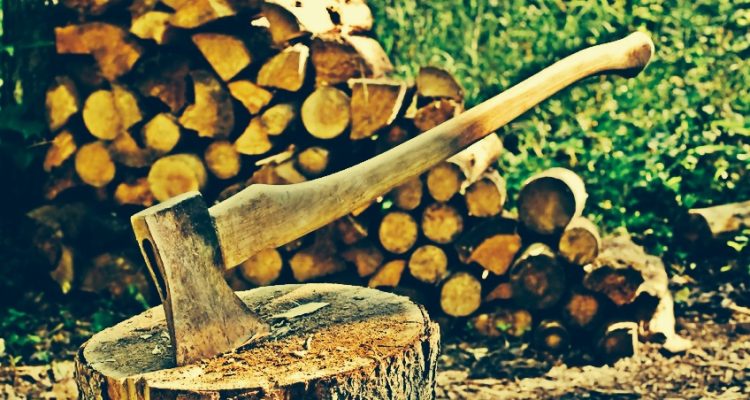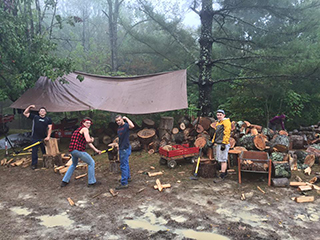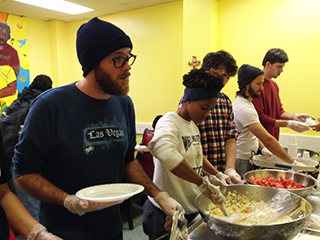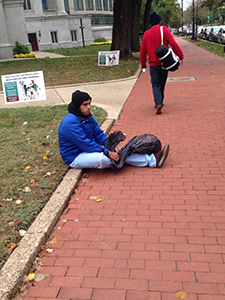Students at Wheeling Jesuit University are continually encouraged to live out the university’s mission by serving others. Again this year, students gave up their fall break to take part in three separate immersion trips – all to make a difference in the lives of others.
Each immersion is unique to its own geographical location, population demographics, and community dimensions. This semester students embarked on three journeys that took them on top of a mountain in Mingo County, W.Va., to the Nation’s capital, and to areas throughout the Ohio River Valley.
“Immersions allow students to recognize the difficulties of diverse environments, many of which parallel the same issues that we see in Wheeling. Students are challenged to bring back the skills and understanding they received on the immersion to better serve the Wheeling community,” said Colleen Ryan, director of WJU’s Service for Social Action Center.
A signature fall trip at WJU – the Mingo County wood-chopping trip – has been part of the WJU student immersion experience for more than 30 years. The relationship first started when WJU Professor Emeritus, The Rev. James O’Brien, S.J. developed a relationship with two nuns who live on top of Big Laurel Mountain.
“Chopping wood might seem like an easy job, but for the people who live on Big Laurel Mountain – this is their supply for the winter,” said WJU’s Appalachian Institute Director Beth Collins.
After chopping wood for two days, students were able to learn about Appalachian culture, especially about mountain top removal and coal mining.
“Getting the full college experience is more than simply going to class and doing homework. I’m from Canada, and the culture in West Virginia is very different from my home. To fully gain a true understanding of this state that I’m living in currently, I found it necessary to get to know the people and help out to the best of my abilities,” said WJU senior athletic training major Kassidy Forsen.
“The people in Mingo County are some of the kindest, strongest, and most appreciative people I’ve ever met. So many students on campus don’t realize what a big difference a weekend of service can make for them,” she added.
Students in a second group spent two days traveling the Ohio Valley on the Appalachian Health Care Immersion, exploring rural health topics through discussion based learning and health related service projects.
A main topic of discussion was the drug abuse plaguing the Mountain State and the region. Additionally, students paid a visit to a number of clinics to volunteer time and learn about issues related to drug abuse.
Food education also was a focus. In Appalachia, where diabetes and obesity are on the rise, students worked on a public health survey for Grow Ohio Valley, an organic farm in Wheeling.
The final immersion challenge for WJU students in Washington, D.C., was to spend 48 hours homeless.
“Overall this was a trans formative experience for all of us. We were able to encounter those experiencing homelessness in a way we have not been able to before,” said Ryan.
After visiting a homeless shelter, students hit the streets to live as someone without a home.
WJU senior Nic Cochran shared his experience saying: “After donning my ‘homeless outfit,’ which I had been wearing for three days prior, I set out into the world with my backstory ready in case someone asked me why I was a street person. But the opposite happened. I was ignored – actively, purposefully, and intentionally ignored. Seeing people turn their heads to admire the architecture of road construction across the street to not have to look at me was one of the most dehumanizing experiences I’ve ever had.”
Additionally, students volunteered at a shelter by preparing breakfast and lunch, and sorted through clothes for the shelter’s clothing handout.
“We saw the very human side of what it means to be homeless, and we experienced just a little piece of how difficult that can be. We were reminded very clearly how an individual’s situation (living without a home) can too often define a person. Although we may not be able to change the entire world, we can change how we treat others especially those living through difficult situations like homelessness,” Ryan added.





